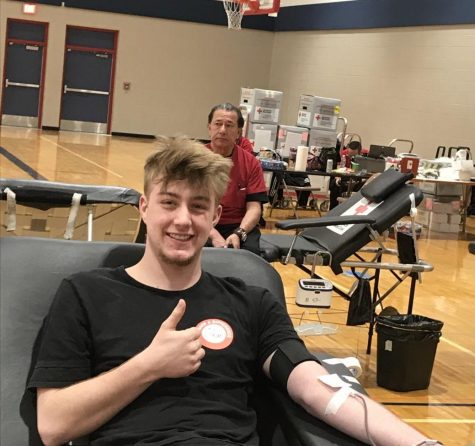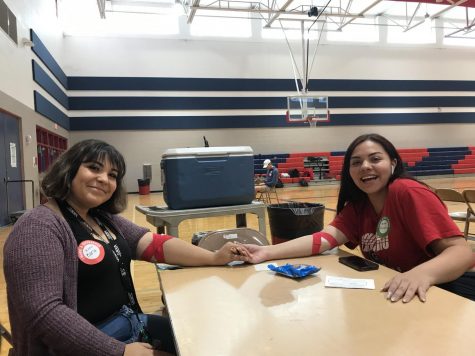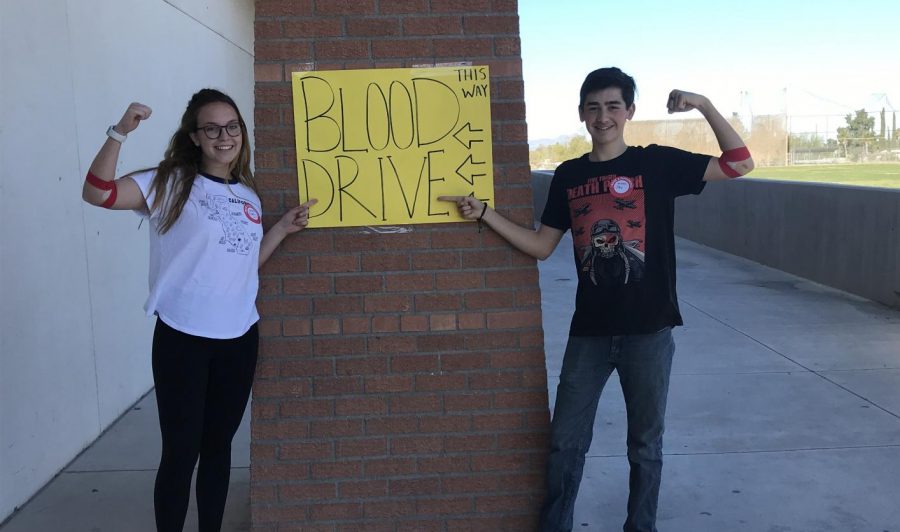NHS Blood Drive- The Importance of Your Blood
March 9, 2020
Blood donations are essential to keeping trauma, surgery, and a large variety of chronically ill patients stabilized and alive when life is beating them down. Without sufficient blood, veins and arteries struggle to provide oxygen to tissues and organs, causing way more problems down the line, if they survive. That is why it is important for healthy people, maybe such as yourself, to donate as much blood as you can, when you can. Just one pint/unit of blood can save three lives. The average human has at the most, twelve pints of blood in their body. So, make your pints count.

On Friday, March 6th, 2020, from 8 am to 2 pm, National Honor Society held their second Red Cross blood drive of the school year 2019-2020 in the auxiliary gym. Many upperclassmen took to the gym to donate their young life-saving blood, some giving two mighty pints of blood, and some donating one pint, both that could make a significant difference in someone’s life, maybe even prolonging it.
To be eligible to donate blood, you must be at least sixteen in Arizona, meet other requirements involving a height to weight ratio, and you, of course, must be in good health.
When you donate for your first time, the phlebotomist (people trained to draw blood from a patient) will take your blood, then have it tested for blood type and make sure blood levels such as hemoglobin (a blood protein) are good enough to be used in patients. After testing is run and everything deemed okay, Red Cross will send you a donor card in the mail. The card will tell phlebotomists what blood type you have and if you are all clear for a donation!
NHS president Avery Miller feels strongly about blood donation saying, “Our blood is so important and can serve a great purpose in helping so many people. At one point in your life, you or a loved one might need a blood transfusion. Donating blood should really be a civic duty for healthy people like us.”

Accidents happen, and when they do, it’s always a good idea to have some spare blood lying around. “My father and I were camping and I got cut by a tree on a vein in my arm,” Sahuaro student Chris Gause said. “As I began to mildly bleed out, my father, being thirty miles away from a hospital, pinched and superglued it back together for the time being. I later received a blood transfusion that day.”
Without blood donation, innocent lives would be lost in a completely solvable way. With your blood, you can save countless lives the more you donate. Specific ethnicities are susceptible to some diseases and those of that ethnicity who are not affected can help more than someone who is not, so when you are able to donate, make sure to do your research to see all the people you could be helping.
“It’s a beautiful day to save lives,” says senior Nathan Schmidt, quoting Grey’s Anatomy.












